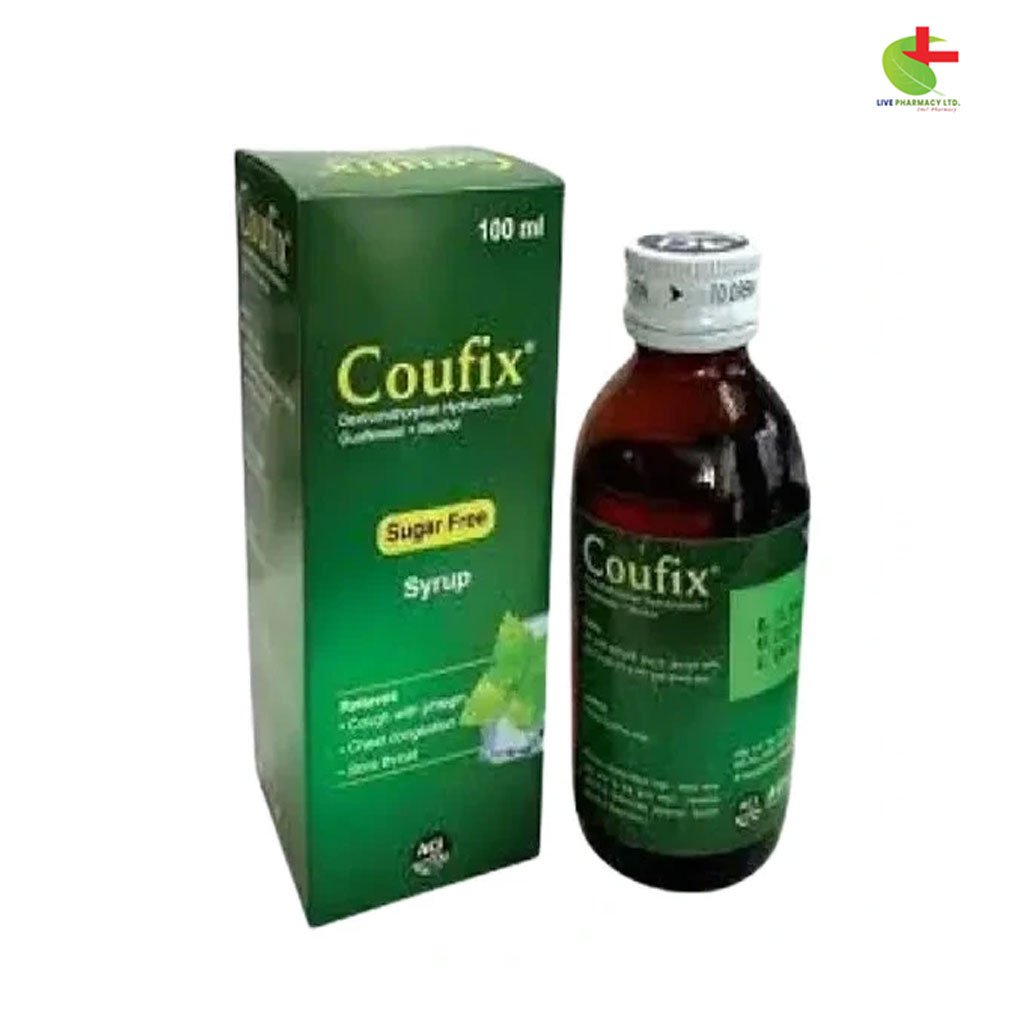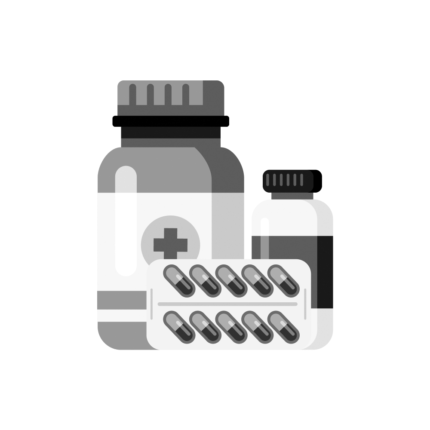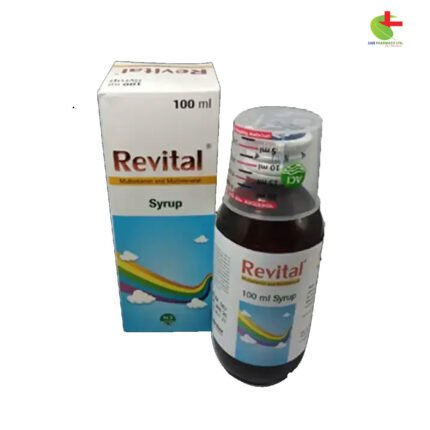Coufix
85.00৳ Bottle (100ml)
- Coufix is a combined cough syrup formulated to relieve chest congestion, cough, and sore throat effectively.
- Contains Guaifenesin (expectorant), Dextromethorphan Hydrobromide (cough suppressant), and Menthol (throat soother).
- Offers dual-action relief by loosening mucus and suppressing cough reflex while soothing throat irritation.
- Ideal for adults aged 12 years and above, providing fast-acting and reliable respiratory care.
 Brand
Brand
|
ACI Limited |
|---|---|
 Generics
Generics
|
Guaifenesin + Dextromethorphan + Menthol |
 Type
Type
|
Syrup |
0
People watching this product now!
Description
Indications
Coufix is recommended for alleviating:
- Chest congestion
- Cough
- Sore throat
Take this medication as directed by a registered physician.
Composition
Each 5 ml of Coufix syrup contains:
- Guaifenesin BP: 200 mg
- Dextromethorphan Hydrobromide BP: 15 mg
- Menthol USP: 15 mg
Pharmacology
Guaifenesin acts as an expectorant, helping to loosen mucus in the chest and throat, enabling easier expulsion through coughing.
Dextromethorphan Hydrobromide is a cough suppressant that reduces brain signals triggering the cough reflex.
Menthol is derived from mint oils or synthesized, providing local anesthetic and counter-irritant properties to soothe throat irritation.
Dosage & Administration
- Adults (12 years and older):
- Take 2 teaspoons (10 ml) every 6 hours.
- Do not exceed 8 teaspoons (40 ml) in a 24-hour period.
- Children under 12 years: Not recommended.
Always consult a registered physician before use.
Drug Interactions
Coufix may interact with the following:
- Acetaminophen or hydrocodone
- Diphenhydramine
- Escitalopram
- Alprazolam
- Ondansetron
Contraindications
- Do not use Coufix if you are currently taking or have recently stopped (within 2 weeks) a monoamine oxidase inhibitor (MAOI).
- Consult your doctor or pharmacist if unsure about MAOI interactions.
Possible Side Effects
Common side effects may include:
- Drowsiness or dizziness
- Gastrointestinal disturbances
- Nervousness, restlessness, or irritability
Pregnancy & Lactation
- Both Dextromethorphan Hydrobromide and Guaifenesin are classified under pregnancy category C by the FDA. Use during pregnancy should only occur if benefits outweigh the risks.
- Insufficient data exists regarding excretion in breast milk. Nursing mothers should consult a physician before use.
- There is no conclusive evidence on the safety of Menthol during pregnancy.
Precautions & Warnings
Consult a healthcare provider if you:
- Have asthma, chronic lung conditions, or persistent coughs.
- Are taking medications for depression, including MAOIs.
Overdose Effects
- Guaifenesin: Overdose is unlikely to cause severe toxicity. In extreme cases, gastric emptying may be necessary.
- Dextromethorphan Hydrobromide: Overdose symptoms include excitement, mental confusion, and respiratory depression at very high doses.
- Menthol: High doses may lead to nausea, vomiting, abdominal pain, dizziness, or rapid breathing.
Therapeutic Class
- Combined Cough Expectorants
- Combined Cough Suppressants
Storage Instructions
- Store below 30°C in a cool, dry place, away from direct light.
- Keep out of reach of children.
Reviews (0)
Be the first to review “Coufix” Cancel reply
About brand
Shipping & Delivery













Reviews
There are no reviews yet.